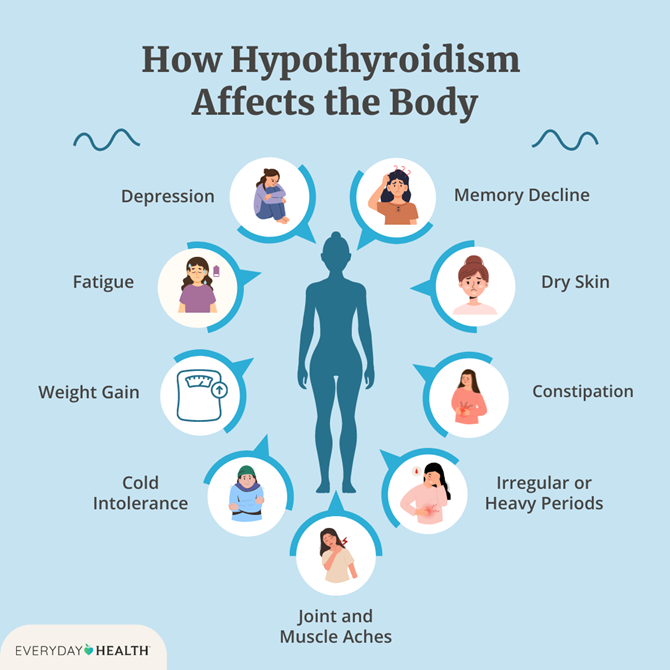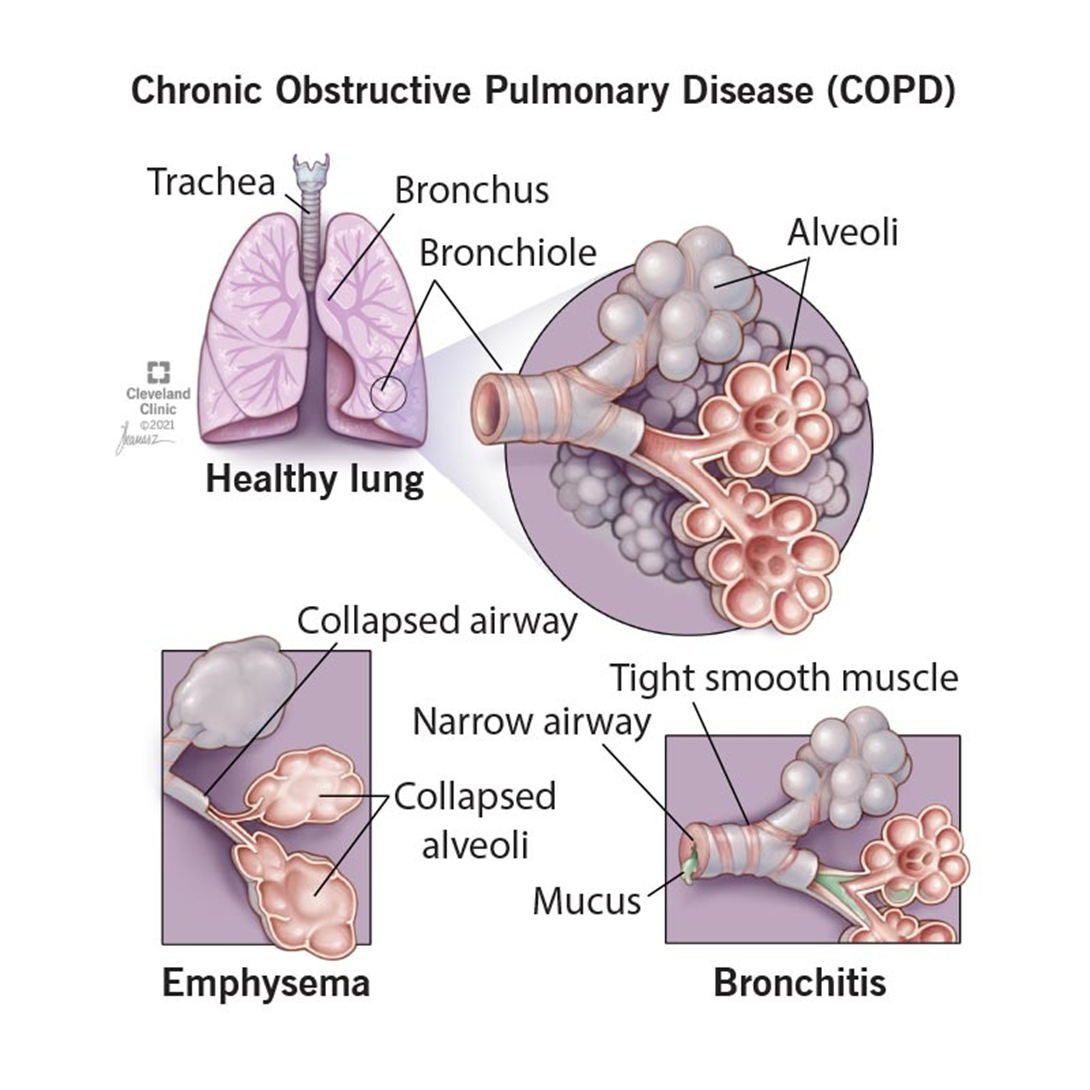Levothyroxine sodium is prescribed for a client with hypothyroidism.
The nurse should instruct the client to report which symptom because it indicates that the client is taking too much levothyroxine sodium?
Constipation.
Intolerance to cold.
Restlessness.
Decreased appetite.
The Correct Answer is C
Choice A reason: Constipation is typically a symptom of hypothyroidism, not hyperthyroidism. If a client is taking too much levothyroxine, they are more likely to experience symptoms of hyperthyroidism, such as diarrhea, rather than constipation.
Choice B reason: Intolerance to cold is a common symptom of hypothyroidism, indicating that the thyroid hormone levels are too low. If the client is taking too much levothyroxine, they would more likely experience heat intolerance due to increased metabolic activity.
Choice C reason: Restlessness is a symptom of hyperthyroidism, which can occur if a client is taking too much levothyroxine. Excess thyroid hormone can lead to increased nervous system activity, causing symptoms such as restlessness, anxiety, and tremors.
Choice D reason: Decreased appetite is more commonly associated with hypothyroidism. In contrast, hyperthyroidism, which can result from taking too much levothyroxine, often leads to an increased appetite.

Nursing Test Bank
Naxlex Comprehensive Predictor Exams
Related Questions
Correct Answer is D
Explanation
Choice A reason: While it is true that breastfeeding is not recommended while taking isotretinoin due to the potential for adverse effects on the infant, this is not the most critical information for a client planning to become pregnant. The primary concern is the teratogenic effects of isotretinoin, which can cause severe birth defects.
Choice B reason: Advising the client not to take multiple vitamins that contain vitamin A while on isotretinoin is important because excessive vitamin A can increase the risk of toxicity. However, this is not the most crucial information for someone planning to become pregnant. The teratogenic risks of isotretinoin are a higher priority.
Choice C reason: Obtaining baseline liver function results is necessary during isotretinoin therapy due to the potential for hepatotoxicity. Regular monitoring helps ensure the liver is functioning properly. However, this information is secondary to the need to avoid pregnancy while on isotretinoin due to its severe teratogenic effects.
Choice D reason: Discontinuing isotretinoin one month before attempting to conceive is the most important information. Isotretinoin is highly teratogenic and can cause serious birth defects. It is crucial to stop the medication well before conception to ensure it is completely cleared from the body, reducing the risk of harm to the fetus.
Correct Answer is D
Explanation
Choice A reason:
Rinsing the mouth after each use of an inhaler is a recommended practice, especially for inhalers containing corticosteroids, to prevent oral thrush and other side effects. Although ipratropium is not a corticosteroid, rinsing the mouth can still help reduce any potential irritation or unpleasant taste.
Choice B reason:
Storing the medication at room temperature is appropriate for most inhalers, including ipratropium2. This ensures the medication remains effective and safe to use. It is important to keep the inhaler away from extreme temperatures and direct sunlight.
Choice C reason:
Attaching a spacer device to the inhaler can be beneficial, especially for patients who have difficulty coordinating the timing of inhalation with the activation of the inhaler. A spacer helps ensure that more medication reaches the lungs rather than being deposited in the mouth or throat.
Choice D reason:
Priming the inhaler with 7 pumps is excessive. Typically, ipratropium inhalers require priming with only 2 to 4 sprays before the first use or if the inhaler has not been used for a few days. Over-priming can waste medication and may indicate that the client needs additional instruction on proper inhaler use.

Whether you are a student looking to ace your exams or a practicing nurse seeking to enhance your expertise , our nursing education contents will empower you with the confidence and competence to make a difference in the lives of patients and become a respected leader in the healthcare field.
Visit Naxlex, invest in your future and unlock endless possibilities with our unparalleled nursing education contents today
Report Wrong Answer on the Current Question
Do you disagree with the answer? If yes, what is your expected answer? Explain.
Kindly be descriptive with the issue you are facing.
